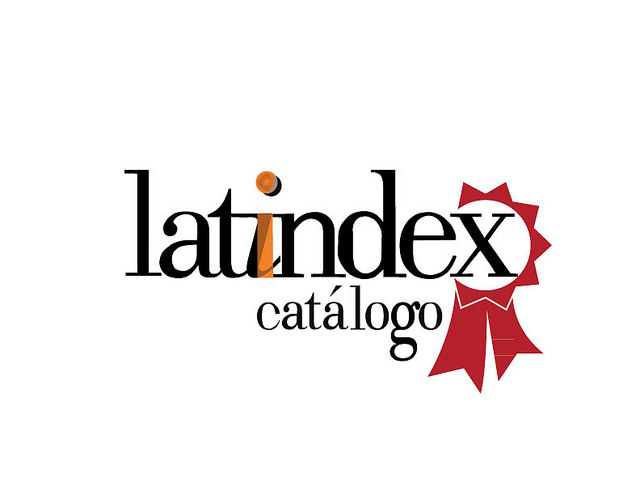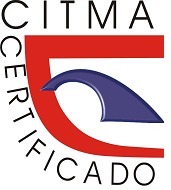Requirements for the design of a control tower in the supply chain of an international parcel company
Keywords:
Supply Chain, Information system, Control tower, visibilityAbstract
The handling of international shipments presents delays in the delivery to its final destination, particularly in the management of its last mile. The exchange of information between entities continues to be an important process for today's organizations and its impact on the success of supply chains is considered vital. The need arises to implement tools that allow the integration of information systems, with statistical data and processes. From this perspective, it analyze the usefulness of visibility in real time, as the epicenter of supply chains, and a conceptual framework for its application is presented. The study of some methods and tools that will allow the implementation of the virtualized data integration framework through a Control Tower is also presented. The main requirements to implement a control tower for the supply chain of an international shipping distribution company is offered.
References
Akben, İ., & Özel, M. (2017). Tedarik Zinciri Görünürlüğü: Kontrol Kulesi Yaklaşımı Supply Chain Visibility: Control Tower Approach. Gaziantep University Journal of Social Sciences, 16(3): 612-627. doi:10.21547/jss.306811
Anggoro, B. K., Hubeis, M., & Sailah, I. (2018). Information system interoperability maturity model. Bulletin of Social Informatics Theory and Application, 2(1): 22-33. doi:10.31763/businta.v2i1.103
Apolinario, R., & Guevara, D. (2021). El efecto mediador de la capacidad ejecutiva para la innovación entre la gestión del conocimiento y el rendimiento de la cadena de suministros. Información tecnológica, 32(1): 151-168. doi:http://dx.doi.org/10.4067/S0718-07642021000100151
Arruda, D. (2018). Requirements engineering in the context of big data applications. ACM SIGSOFT Software Engineering Notes, 43(1): 1-6.
Barbosa Guzmán, L. M., Bonilla Pérez, L. M., Gacharná Díaz, J. J., Valdés Hernández, A. M., & Cárdenas Ramos, A. (2019). Método para la implementación de una torre de control de inventarios en Promed Quirúrgicos. Trabajo de grado en modalidad de aplicación, Pontificia Universidad Javeriana, Facultad de Ingeniería, Bogotá, Colombia. Recuperado en abril de 2022
Burns, T., Cosgrove, D., & Doyle, F. (2019). A Review of Interoperability Standards for Industry 4.0. 29th International Conference on Flexible Automation and Intelligent Manufacturing (FAIM2019), p. 646-653. Ireland: Elsevier B.V. Recuperado en mayo de 2022, de www.sciencedirect.com
Busse, C., Schleper, M. C., Weilenmann, J., & Wagner, S. M. (2017). Extending the supply chain visibility boundary: Utilizing stakeholders for identifying supply chain sustainability risks. International Journal of Physical Distribution & Logistics Management, 47(1): 18-40. doi:10.1108/IJPDLM-02-2015-0043
Сергеев, В., Сергеев, И., & Хлобыстова, К. (2020). Проблема видимости цепи поставок и использование концепции Supply Chain Control Tower. Логистика, 3(160), 35.
Charłampowicz, J., & Mańkowski, C. (2017). Maritime Container Supply Chain Efficiency Indicators-Selected Issues For Research And Applications. Challenges And Modern Solution In Transportation.
Devang, V., Chintan, S., Gunjan, T., & Krupa, R. (2019). Applications of Artificial Intelligence in Marketing. Annals of “Dunarea de Jos” University of Galati, 25(1): 28-36.
DHL (2021). Recuperado el 24 de abril de 2022, de https://www.dhl.com/jp-en/home/press/press-archive/2021/dhl-supply-chain-launches-connected-control-tower.html
DHL-freight (12 de 11 de 2020). FRIGHT Connection-Solutions. Recuperado el 15 de septiembre de 2022, de Food logistics and COVID-19: DHL FoodLogistics' Control Tower has many advantages: https://dhl-freight-connections.com/en/solutions/the-impact-of-covid-19-on-food-logistics/
Dogan, O., Ayyar, B., & Cagil, G. (septiembre de 2019). Process-Oriented Evaluation of Customer Satisfaction: Process Mining Application in a Call Center., p. 172-181. doi:https://www.researchgate.net/publication/336210412
driv.in. (2022). Cadena de Suministro. Recuperado el 6 de mayo de 2022, ¿Qué es una torre de control?, de https://blog.driv.in/es/que-es-una-torre-de-control/
Erdogan, T. G., & Tarhan, A. (abril de 2018). Systematic Mapping of Process Mining Studies in Healthcare. IEEE Acsess 6, p. 24543-24567. Recuperado el 4 de marzo de 2022, de https://www.researchgate.net/project/Process-Mining-in-Healthcare-2
Gaspar, P. G., Ceryno, P. S., Ferrer, A. L., & Tavares Thomé, A. M. (2020). Phases and tools for supply chain risk management: a systematic literature review. Gestão & Produção, 27(3): e4227. doi:10.1590/0104-530X4227-20
Gerke, K., Claus, A., & Mendling, J. (2009). Process Mining of RFID-based Supply Chains. 2009 IEEE Conference on Commerce and Enterprise Computing, p. 285-292, IEEE.
Harsanto, B. (2022). Big Data Analytics in the Supply Chain In Indonesia. Advances in Science and Technology, 112, p. 163-168. doi:10.4028/p-6aawzh
Huang, L., Holtskog, H., & Wan, P. K. (marzo de 2020). Blockchain-enabled information sharing within a supply chain: A systematic literature review. IEEE access, 8, p. 49645-49656. doi:10.1109/ ACCESS.2020.2980142
Ji, S., Tian, Y., Zhang, Z., & Hailiang, L. (2013). Research on the FMCG Supply Chain Quality Control Tower System and Operation Mechanism. Advanced Materials Research, 694(697): 3610-3613. doi:10.4028/www.scientific.net/AMR.694-697.3610
Kumar, P. (25 de agosto de 2021). Supply Chain & Operations insights. Recuperado el 17 de mayo de 2022, de accenture: https://www.accenture.com/us-en/blogs/business-functions-blog/supply-chain-control-tower
Lezoche, M., Panetto, H., & Aubry, A. (2011). Conceptualisation Approach For Cooperative. 13th International Conference on Enterprise Information Systems, ICEIS 2011, Beijing, China. doi:10.5220/0003508401010110
Logistica Profesional (2022). Obtenido de DHL inaugura su nueva torre de control digitalizada que centraliza su logística de transporte nacional e internacional: https://www.logisticaprofesional.com/texto-diario/mostrar/3502391/dhl-inaugura-nueva-torre-control-digitalizada-centraliza-logistica-transporte-nacional-e-internacional
Lopes Martínez, I., Marrero Durán, S. P., Feria Martínez, M. A., Espina Martin, Y., & Lugo Almaguer, A. (2021). Impacto de la COVID-19 en las cadenas de suministro globales: caso comercio electrónico. Revista Cubana de Administración Pública y Empresarial, 5(1): 18-36. Obtenido de https://www.researchgate.net/publication/350801994
Messina, D., Soares, A. L., Barros, A. C., & Zimmermann, R. (2022). How visible is your supply chain? A model for supply chain visibility assessment. In Supply Chain Forum: An International Journal, p. 1-13. doi:10.1080/16258312.2022.2079955
Naik, S., & Kumar, P. (2021). The New Essential for Supply Chains: Intelligent Execution Control TowerPart I. Supply Chain Management reveiw. Recuperado el 26 de abril de 2022, de Accenture: https://www.accenture.com/us-en
Navarro Arango, O. A. (2021). Implementación de la torre de control para la administración de riesgos operativos en empresas de transporte terrestre de carga en Colombia. Tesis Doctoral, Universidad EAFIT. Medellín.
Nilsson, J., & Sandin, F. (2018). Semantic Interoperability in Industry 4.0: Survey of Recent Developments and Outlook. En IEEE. (Ed.), Nilsson, J., & Sandin, F. (2018, July). Semantic interoperability in industryIn 2018 IEEE 16th international conference on industrial informatics (INDIN), p. 127-132.
Nonzoque Herrera, A., Guzmán, L. C., & Rodríguez, J. I. (30 de enero de 2020). Gestión de información de la cadena de suministro. Revista Ibérica de Sistemas e Tecnologias de Informação, E(28): 1051-1064.
Ovalle Paulino, C. (enero de 2022). Predictive model based on Machine Learning for the Supply Chain and its influence on the logistics management of car sales company. ICCMB 2022: 2022 5th International Conference on Computers in Management and Business. doi:DOI: 10.1145/3512676.3512713
Panetto, H., & Cecil, J. (2013). Information systems for enterprise integration,. Enterprise Information Systems, 7(1): 1-6. doi:https://doi.org/10.1080/17517575.2012.684802
Patsavellas, J., Kaur, R., & Salonitis, K. (2021). Supply chain control towers: Technology push or market pull-An assessment tool. IET Collaborative Intelligent Manufacturing, 3(7): 290-302. doi:10.1049/cim2.12040
Pérez Ramírez, R. (2020). Políticas, Casos de estudio, Técnicas de simulación y programas de competencias en la educación de logística y cadena de suministro en México. doi:10.35429/H.2020.1.1.14
Ploos van Amstel, W., van Goor, A., & Ploos van Amstel, M. (2019). Supply chain control and assessment. European distribution and supply chain logistics. doi:DOI: 10.4324/9781003021841-21
Sadiq Jajja, M. S., Chatha, K. A., & Farooq, S. (s.f.). Impact of supply chain risk on agility performance: Mediating role of supply. International Journal of Production Economics, 205, p. 118-138. doi:https://doi.org/10.1016/j.ijpe.2018.08.032
Somapa, S., Cools, M., & Dullaert, W. (2018). Characterizing supply chain visibility – a literature review. The International Journal of, 29(1): 308-339. doi:10.1108/IJLM-06-2016-0150
Stuart Cárdenas, M. L., Prieto del Río, D. R., Quial Sotolongo, J. A., Delgado Fernández, T., & Delgado Fernández, M. (junio de 2021). Mejora a la gestión de información. Revista cubana de transformación digital, 2(2): 24-40.
Stuart Cárdenas, M. L., Prieto del Río, D. R., Quial Sotolongo, J. A., Delgado Fernández, T., & Delgado Fernández, M. (2021). Mejora a la gestión de información en el proceso de servicio postal universal. Revista Cubana De Transformación Digital, 2(2), 24. Revista Cubana de Transformación Digital, p. 24-40.
Suárez Fernández, P., Villar Ledo, L., Infante Abreu, M. B., & Guillén García, J. (mayo de 2020). Aplicación de patrones visuales en el diagnóstico de sistemas de información. Revista Cubana de Ingeniería, XI(2).
Sudrajat, A., Sudirman, I., & Prasetyo, R. (2020). Digitalization of logistics processes and comparison with several Asian countries related to logistics information systems. Solid State Technology, 63(3): 2824-2836.
Verma, R., Koul, S., & Singh, G. (2020). Intelligent Decision-Making: Using Control Tower. 2020 IEEE International Conference on Computing, Power and Communication Technologies (GUCON), p. 550-554. doi:10.1109/GUCON48875.2020.9231108
Verma, R., Koul, S., & Singh, G. (2020). Intelligent Decision-Making: Using Control Tower at a Logistics Company. 2020 IEEE International Conference on Computing, Power and Communication Technologies (GUCON). doi:10.1109/GUCON48875.2020.9231108
Verwijmeren, M. (2022). MPO Solution Guide. Obtenido de Top 5 Trends for Supply Chain Control Towers in 2022: https://www.mpo.com/blog/supply-chain-control-tower-trends
Vlachos, I. (2021). Implementation of an intelligent supply chain control tower: a socio-technical systems case study. . Production Planning & Control, p. 1-17. doi:10.1080/09537287.2021.2015805
Ye, C., Zaraté, P., & Kamissoko, D. (2022). A DSS Based on a Control Tower for Supply Chain Risks Management. Decision Support Systems XII: Decision Support Addressing Modern Industry, Business, and Societal Needs, p. 124-136. doi:10.1007/978-3-031-06530
Downloads
Published
How to Cite
Issue
Section
License
Copyright (c) 2022 Mildred Walwyn Fuentes, Tatiana Delgado Fernández, Mavis Liz Stuart Cárdenas

This work is licensed under a Creative Commons Attribution-NonCommercial 4.0 International License.













